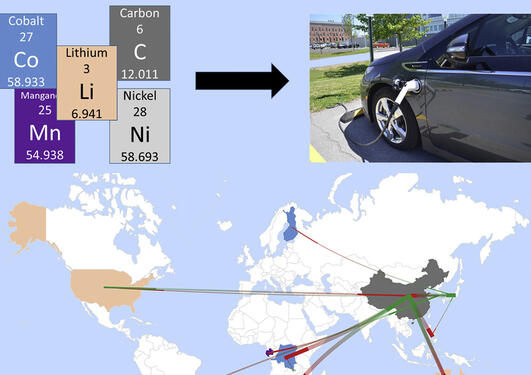Watch 'Mapping the value chains of electric vehicles: social and environmental accounting' here!
Devyn Remme, PhD Candidate at Department of Geography at UiB will present the very interesting and very relevant topic of electric vehicle (EV) battery value chains, including their environmental and social impact
Global Impacts of the Nordic EV Revolution
Main content
Batteries are the beating heart of renewable energy transformations and the fundamental technological innovation driving decarbonization in the transport sector. Global sales of electric cars have grown exponentially since 2010 (IEA, 2020). Sales continued to accelerate in 2020 and Norway is at the forefront of this shift. There is a widespread consensus that mass adoption of EVs is inevitable, but the rate of the shift will partially depend on the price of EVs lowering to become more competitive with fossil fuel cars (BNEF, 2020; IEA, 2020) and the availability of extracted minerals and manufactured components such as semi-conductors. Lithium-ion batteries currently account for a third of the cost of building an electric car, thus the EV revolution requires keeping the prices of the raw materials and labor related to extraction and manufacturing as low as possible.
In this project, I trace the value chains of the Li-ion batteries upon which EVs depend. At minimum, batteries require the mining of minerals, processing, manufacturing, transport, and recycling. The environmentally precarious extractive industries and toxic processes required for upstream activities are largely found in the global south. Meanwhile, nascent but rapidly growing industries for battery cell-production, re-use and recycling of batteries after they are no longer used in vehicles are picking up speed in the Europe and the Nordics in particular. Responsible end of life treatment is important for environmental issues as well as reducing the demand for new extraction which is expected to fall significantly short of demand as nations commit to decarbonization strategies reliant on batteries.
Webinar speaker
Devyn Remme, PhD Candidate, Department of Geography at University of Bergen
